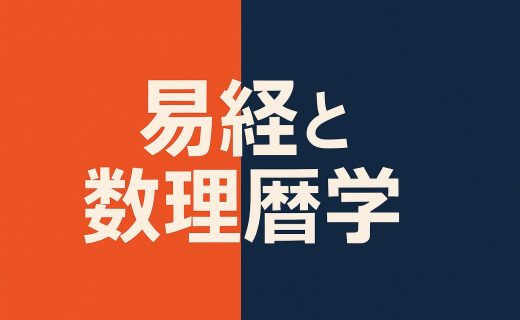REKIGAKU
Chinese calendar-based Horoscope and Western Horoscope
Both Rekigaku and western horoscope originated from the ancient Babylonian Empire practice of astronomy, which goes back to 4,000 years ago. Ancient Babylonians, when they invented a calendar, tied the stars in the sky with the Gods and came up with a theory that the positions of the stars would predict what might happen on earth. This theory had been brought to Greece, which further developed it into astrology using horoscope. This idea was brought in to Egypt and the Roman Empire then to the entire Europe.
Each horoscope was originally drawn up by the positions of stars when one was born, but the Greek renamed the stars with names of Gods. That made horoscope more symbolic, poetic and artistic than before.
Ancient China had its own method like astrology based on their calendar before the Babylonian’s. It was different from the horoscope which was based on the positions of the stars. Theirs was observing the solar eclipse, the moon eclipse, shooting stars, comets and appearance of novae and super novae. They tied the movement in the sky with the phenomena occurred on earth which influenced human activities.
B.C.326, Alexander the Great invaded India and deposited the Hellenism culture in India. It is believed that this was the time when Grecian style horoscope came into India. This placed the Indian astrology to a higher level. The Indian style horoscope entered into China around year 2,500 and was woven into already existed Chinese horoscope based on their ideas. Chinese began to apply the newly enhanced horoscope knowledge to select the right people for their army to win the war.
While the Grecian horoscope, adding elements of Gods, developed into a method to bring better fortune to individual, Chinese used their horoscope to develop army strategies to win the war as well as to manage the conquered people. Their horoscope was also developed into more of a tool to evaluate personal character and ability.
The objective of the Chinese horoscope was to focus on the analysis of the current situation and how to improve it, not predicting one’s future. They developed the horoscope with an idea that it was possible to change the future by changing the current situation. They enriched the horoscope by adding statistics that included changes in the sky, weather patterns, a phenomenon, changing times, psychological aspects of people who were impacted by those changes. Their horoscope enabled them to see both macro as well as micro views: a big picture for an entire era and a small picture for individual human beings.
In the meantime, the European horoscope which has much weight on the position of the stars is geometric and requires the precise positions of the stars. Thus it encouraged the development of modern astronomy. On the other hand, Chinese calendar-based horoscope is algebraic in that it culls changes in the sky, natural phenomena, social phenomena, winners and losers of the time and the reasons behind into statistics. The knowledge was mainly used for developing war strategies and ways for the government to control people and was used only by selected people. Even today, it is prohibited for ordinary citizens to use it in Mainland China.
When China became a communist country, many Chinese scholars moved to overseas.
They brought the knowledge, which had been kept secret and had never been transmitted to outside of China, to Japan. While common Chinese fortune telling methods use 4 techniques, Chinese scholars’ knowledge which has been used exclusively by the rulers for developing military strategies, offers as many as 16 techniques. It is a high level science of statistics to analyze a wide range of subjects when used mixing various techniques.
About 20 years ago, I got a chance to study the concept of Chinese horoscope from Master Nampo Shimizu who is the first disciple of Master Yoshimasa Takao, who has acquired the knowledge directly from a Chinese scholar. Those two masters have developed the concept further by adding Zen thinking to it. I attempted to scientifically prove their theory through programming by demonstrating its reproducibility. And, I am pleased to say that I was able to successfully translate it to UNGA technology as a business tool for human resources development.
When I started learning the concept I had to use my brain and hands to calculate, but today I can do detailed complicated calculation instantly. My dream is to create a society where people can understand each other by utilizing the tool.
暦学とホロスコープの違い
暦学もホロスコープも起源は、今から4000年前、古代バビロニアで行われた大規模な天体観測に遡る。古代バビロニアでは、天の星々と神々を結びつける考えが誕生し、暦の発展と共に、天体の配列が地上の出来事の前兆を示すという考えに進化した。この考えはギリシャに伝えられ、ホロスコープを用いる占星術へと発展し、エジプト、ローマ帝国を経て西洋諸国で広く用いられることになった。
ホロスコープは、出生時における星々の位置から個人の星位図をトレースするものであったが、ギリシャでは星を神々に置きかえることで、より象徴的で詩的で芸術的なものとして発展させていった。
古代中国に、バビロニア占星術が伝わる以前から、独自の暦を用いた手法があった。それは、天体の配置ではなく日食、月食、流星、彗星、新星や超新星の出現、そして星の見え方など天変現象に注目して研究し、天が起こす様々な現象が、その時の人間活動に関係している考え関連づけようとしたものであった。
紀元前326年、アレキサンダー大王によるインド侵攻を機に、ヘレニズム文化がインドに影響を与えた。この時、ギリシャで発達したホロスープがインドに伝承され、既にインドに存在していたインド固有の占星術に影響を与え、ホロスコープがそこに組み込まれ、より高度化されたものになった。
このインド式ホロスコープが、約2500年、戦国時代の中国に導入され、中国古来の理論をさらに、人物把握の戦術的方法として発展していくことになる。
ホロスコープが、神々をシンボルとして個人の運勢を関連付けた美的で芸術的でロマンティックなものとして発展したのに対し、中国で発達した暦学は、戦争で勝つための軍略法としての人物考察に特化して発展していく事になった。そのため、未来を予測するより、現状を分析し、どう活用したら良いかと言う視点の、より戦略的なものである。
彼らは従来の天変現象を組み込むことで、時代の推移と自然現象の変化、それに伴うその時の人間の深層心理を統計学として集積し続けたことにより、時代全体を考察するマクロ的視点と、個人を考察するミクロ的視点の両面から発展させていくことになったのだ。
天体配列を重視したホロスコープは幾何学的であり、惑星の位置の精緻な計算を必要とすることから、近代天文学を発展させていった。
一方、暦学は、天変と自然現象、社会現象を組込ながら、その時勝者・敗者の原因を追究していったため、統計学的・数学的ものである。
主に軍略に使われ為、その知識は極めて限定された人に留められている。そのため、現在の中国ではこの技法を一般の人が用いることは禁止されている。
中国において共産党国家が樹立した際、多くの学識者が世界へ分布していった。
暦学は、日本に亡命してきた学者により伝えられたものである。
庶民の好む占いには4種類の技法しか用いられていないが、長い間為政者により軍略として用いられてきた暦学は16種類の技法が複雑に組み合わされた技法である。技法が多ければ多いほど、統計学なためより詳細に分析することができる。
この20年間でコンピューターは大きく発展した。私が学び始めた時自分の頭を使って計算しなければならなかったが、今や瞬時に精緻な結果を出すことが出来る。




